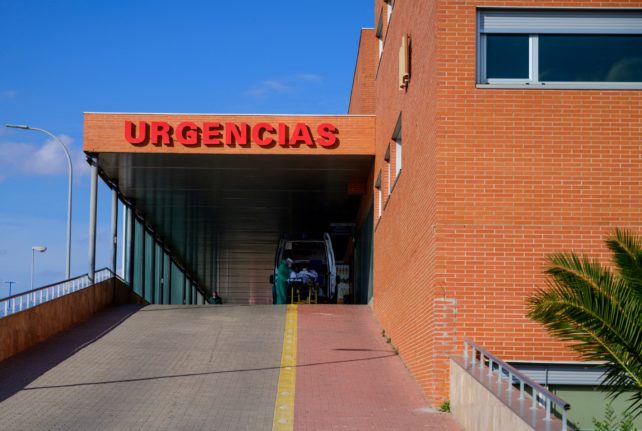According to recent data published by Spain’s Ministry of Health, there has been a 7.1 percent increase in the number of people waiting for these elective surgeries compared to in December 2022.
The average waiting time across the National Health System in Spain was 128 days.
Data also revealed that 24.3 percent of patients had been on the waiting list for more than six months.
Average waiting times have increased by eight days compared to the same time last year and the percentage of patients waiting more than six months has increased by 3.5 points compared to December 2022.
READ ALSO:
- The best private healthcare for foreigners in Spain
- How to get access to public healthcare in another region of Spain
The total number on the waiting list has also increased in the last six months, compared to June 2023, when the total stood at 819,964 patients. Then, the average waiting time was 112 days, 16 less than in December of the same year.
The numbers have changed drastically since the Covid-19 pandemic. For example, in December 2018, the number of patients on the waiting list was 668,228. This means the figure has increased by 27.1 percent in five years. The average waiting time then, however, was 129 days, one more than in December 2023.
Marciano Sánchez, president of the Association for Defence of Public Health said: “The problem is not being addressed seriously. During the pandemic, everyone remembers that the government and the autonomous communities assured us that a very clear conclusion had been drawn, that the health system had to be strengthened, and that a firm commitment to health had to be made”.
READ ALSO: Why Spain is running out of doctors
“Unfortunately, this has not been done,” he added.
Traumatology had the highest number of patients waiting for surgery 206,375, a number that has grown compared to the 190,990 a year ago.
This was followed by Ophthalmology (177,844, compared to 172,093 a year ago) and General and Digestive Surgery (156,254).
Like the previous year, the specialty that had the fewest people waiting was thoracic surgery (2,450 people). This figure is very close to that of December 2022, when 2,418 patients were waiting.
The specialty with the longest average waiting time continues to be plastic surgery with 239 days, followed by neurosurgery with 213 days and traumatology, where patients have been waiting an average of 149 days.
Extremadura was the region with the longest average waiting time for elective surgeries with 181 days, followed by Andalusia with 174 and Cantabria with 173 days.
In the Canary Islands, the figure stood at 147 days and, in Aragón, at 146. All of them exceeded the national average wait, which is 128 days.
The regions with the shortest waiting times were Madrid with 51 days, the Basque Country with 63, Galicia with 67 and Valencia with 88.
READ ALSO: Does permanent residency in Spain equal free public healthcare?



 Please whitelist us to continue reading.
Please whitelist us to continue reading.
Member comments